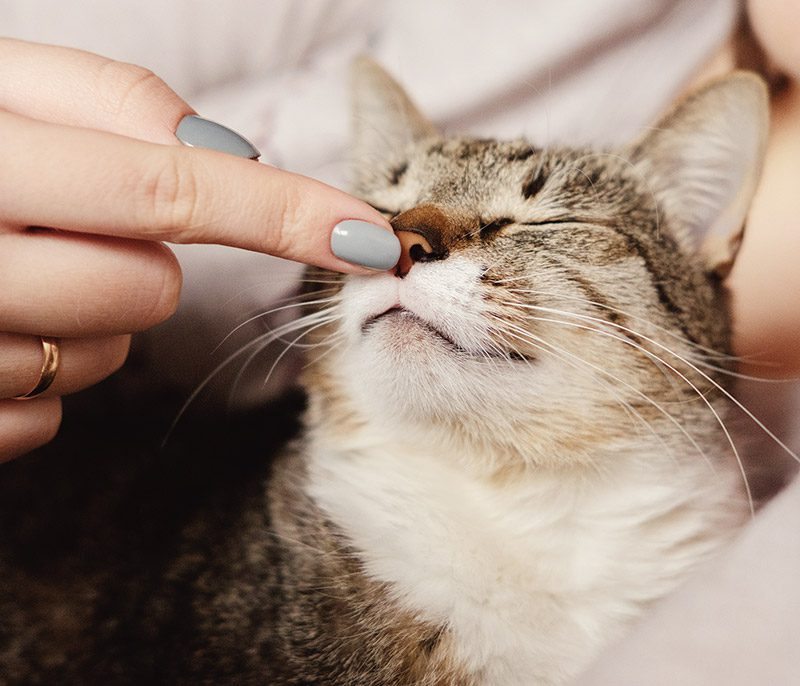Heart disease tends to be less common in cats than dogs, but it still affects one out of every ten cats around the world. If heart disease goes untreated, it can lead to congestive heart failure.
Don't risk losing part of your family to an often treatable heart condition. If you have concerns, seek medical advice quickly. Our board-certified cat cardiologists are here to help.
Heart disease affects 15% of all cats and is difficult to detect. A cat with heart disease might have a heart murmur or rhythm problem that your veterinarian would hear. However, many cats have a silent disease that can only be found by a blood test — NT ProBNP. If it's late in the course of the disease, then a cat might show signs of disease — such as faster breathing, weakness, or hiding.
If your veterinarian finds a heart problem or your cat is showing signs of heart disease, it's best to talk with a board-certified cat cardiologist. CVCA Cardiac Care for Pets is one of the few veterinary practices with board-certified veterinary cardiologists on staff.
By far, the single most common heart problem that affects cats is hypertrophic cardiomyopathy or HCM. This is a genetic-based disease that causes the heart muscle to become too thick. When caught early, this disease can be treated to improve the quality and duration of life in affected cats.
If you have concerns about your cat and heart disease, it's best to reach out to a pet cardiologist near you to get a clear diagnosis and treatment plan. CVCA has several locations in Maryland, Kentucky, Texas, and Virginia. Give us a call, and we will set up one or all of the following:
In many cases, cats with heart problems do not show signs of disease. However, there are signs to look out for that include:
Heart disease in cats can rarely be cured but the good news is that it can be managed with medicine — in pill or liquid form. Most of the drugs used for cat heart disease are also used for people with similar conditions. Without treatment, HCM can lead to fluid in the lungs, sudden death or a blood clot.
Read about hypertrophic cardiomyopathy in cats and other cat heart diseases by clicking on the links below. If you have concerns about your cat, schedule an exam as soon as possible. Remember, early detection is the key to a longer life for your cat. Our board-certified veterinary cardiologists are just a phone call away.

